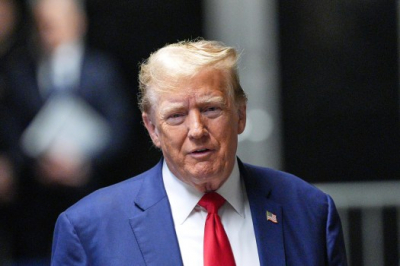In a groundbreaking move that could reshape law enforcement collaboration, Chicago's finest are preparing to embark on an unprecedented job swap with...
The proposed collaboration comes at a critical juncture, with both Chicago and Milwaukee gearing up to host large-scale events that draw attendees from across the nation. Recognizing the need for enhanced security measures in an era marked by evolving threats, law enforcement officials from both cities have devised a bold plan to pool their resources and expertise.
Under the proposed arrangement, officers from the Chicago Police Department (CPD) would temporarily trade places with their counterparts from the Milwaukee Police Department (MPD) during key convention periods. This exchange of personnel is aimed at capitalizing on the unique skill sets and local knowledge possessed by officers from each jurisdiction, thereby bolstering the effectiveness of security operations.
As I delve deeper into the logistics of this exchange, it becomes apparent that coordination and communication will be paramount. With officers accustomed to different protocols, organizational structures, and legal frameworks, bridging the divide between the CPD and MPD will require meticulous planning and training.
Moreover, cultural nuances and community dynamics must also be taken into account. While both Chicago and Milwaukee share commonalities as Midwestern cities, they also harbor distinct identities shaped by their histories, demographics, and socio-economic landscapes. Sensitivity to these factors will be essential in fostering mutual understanding and cooperation among officers.
Beyond the logistical and cultural considerations, the proposed job swap raises broader questions about the future of interagency collaboration in law enforcement. Could this model serve as a blueprint for other cities grappling with similar security challenges? What lessons can be gleaned from this experiment in cross-jurisdictional cooperation?
As a journalist committed to shedding light on complex issues, I am eager to explore these questions and provide readers with a comprehensive understanding of this groundbreaking initiative. Through in-depth interviews with key stakeholders, analysis of historical precedents, and firsthand observations, I aim to offer insights that transcend the headlines and delve into the heart of this unprecedented collaboration.
In a landscape marked by uncertainty and division, the Chicago-Milwaukee job swap stands as a beacon of innovation and solidarity. By bridging geographic and institutional divides, law enforcement officials are demonstrating a shared commitment to safeguarding communities and upholding public safety. As this ambitious experiment unfolds, all eyes will be on Chicago and Milwaukee, watching to see whether this bold vision can be translated into tangible results on the ground.
In conclusion, the proposed job swap between the Chicago Police Department and the Milwaukee Police Department represents a bold step towards reimagining interagency collaboration in law enforcement. As both cities prepare to host major conventions, the need for seamless security operations has never been more pressing. By leveraging the strengths and expertise of officers from each jurisdiction, this innovative exchange holds the potential to enhance public safety and set a new standard for cross-jurisdictional cooperation.
However, the success of this initiative hinges on careful planning, effective communication, and a willingness to navigate the complexities of organizational culture and community dynamics. As officers from Chicago and Milwaukee prepare to trade places, they must undergo rigorous training and orientation to ensure they are equipped to navigate unfamiliar territories and protocols.
Moreover, the implications of this collaboration extend far beyond the confines of Chicago and Milwaukee. As other cities grapple with similar security challenges, the Chicago-Milwaukee job swap offers valuable lessons and insights into the potential benefits of interagency exchanges. By fostering mutual understanding and cooperation among law enforcement agencies, this model has the power to strengthen the fabric of public safety nationwide.
As a journalist with a decade of experience, I remain committed to following the progress of this initiative and providing readers with updates on its outcomes and impact. In an age marked by division and uncertainty, the Chicago-Milwaukee job swap serves as a beacon of innovation and solidarity, demonstrating the transformative potential of collaboration in safeguarding communities and upholding the public trust. As this ambitious experiment unfolds, it is my hope that it will pave the way for new paradigms of law enforcement cooperation in the years to come.






